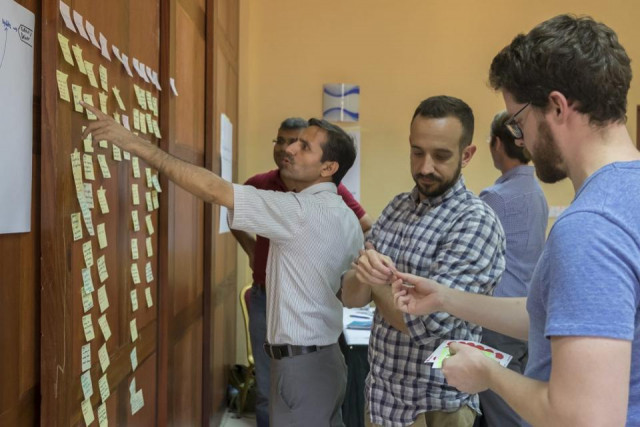This Pakistani start-up will give loans to unbanked consumers
CreditFix was launched in part by DFS Lab, a Bill & Melinda Gates Foundation-backed accelerator

CreditFix created a credit scoring system using alternative data to help underbanked consumers access financing. PHOTO: DFSLABS
“The guy looked genuine so I gave him the money, but it really bothered me how the poor are exploited,” Zaidi said. “Based on my experience consulting with banks, I know how straight-jacketed they are in their policies as well as thoughts.”
Fintech startup raises $1m seed capital to scale mobile wallets in Pakistan
Moved by the taxi driver’s plight, Zaidi decided to do something to help others like him. Launched in 2016, CreditFix is his initiative to build a credit marketplace that draws on alternative data to assess creditworthiness among unbanked consumers. The company will launch a pilot programme in August with 50,000 potential customers.
CreditFix’s platform will use borrowers’ work histories, mobile top-up records, and utility payments to generate credit scores that will then be visible to lenders who use the marketplace. “The core goal of CreditFix is to facilitate the underserved and unserved segments of the population in getting access to fair credit, primarily for revenue generating assets,” Zaidi said.
The fintech start-up was launched in part by Bill & Melinda Gates Foundation-backed accelerator Digital Financial Services Innovation Lab (DFS Lab). The accelerator, which works in emerging markets of South Asia and sub-Saharan Africa, provides start-ups with vital support that include grants, regular mentorship and access to resources often lacking in developing markets.
Karandaaz Pakistan announces Fintech Disrupt Challenge for start-ups to win $100,000
“They bring out their experience working in multiple markets, which has helped us redefine our approach to addressing the problem,” says Zaidi. “The initial grant they provided was key to [achieving] sustainability and taking it to the level that it becomes attractive to investors.”
CreditFix has also received $100,000 in funding through a local fintech challenge and will pursue VC funding after its beta launch. Zaidi said the Pakistani market is “a big enough challenge for the time being.” But he hopes that once CreditFix’s platform reaches critical mass there, they’ll be able to expand into other countries.
This article originally appeared on Forbes



















COMMENTS
Comments are moderated and generally will be posted if they are on-topic and not abusive.
For more information, please see our Comments FAQ